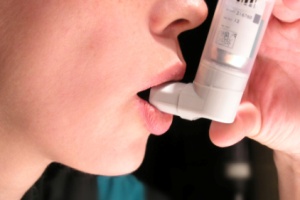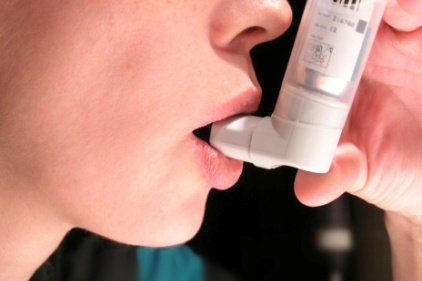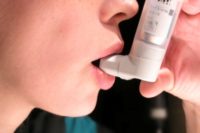 Asthma affects more than 230 million people worldwide, including more than 25 million people in the United States. The annual economic cost of asthma, including direct medical costs from hospital stays and indirect costs such as lost school and work days, amount to approximately $56 billion.
Asthma affects more than 230 million people worldwide, including more than 25 million people in the United States. The annual economic cost of asthma, including direct medical costs from hospital stays and indirect costs such as lost school and work days, amount to approximately $56 billion.
In a statement issued in observance of World Asthma Day (today), the National Institutes of Health (NIH) notes that there is no way to prevent, or to cure, asthma.
"Existing treatments focus on preventing or controlling disease symptoms, such as wheezing, chest tightness, shortness of breath and coughing," says the NIH. "Despite these efforts, each year more than half of children and one-third of adults with asthma in the United States miss school or work because of the disease, approximately 17 million people require medical attention because of an asthma episode, and more than 3,000 asthma-related deaths occur."
Four NIH institutes — the National Institute of Allergy and Infectious Diseases (NIAID); the National Heart, Lung, and Blood Institute (NHLBI); the National Institute of Environmental Health Sciences (NIEHS); and the Eunice Kennedy Shriver National Institute of Child Health and Human Development (NICHD) — support basic and clinical research to understand the causes of asthma and the factors that contribute to its progression.
While the NIH focuses on research, the EPA is offering suggestions to help asthmatics control their symptoms and remain active:
Americans who suffer from asthma can learn to control their symptoms and still maintain active lifestyles. Here are some simple steps:
Know your Asthma Triggers and Avoid Them: Air pollution, dust mites, mold, secondhand smoke and even cockroaches can trigger asthma attacks. Learn your triggers and avoid them in your home and neighborhood.
Create an Asthma Action Plan: You can help avoid the emergency room by managing your asthma daily. With a doctor's help, you can create an asthma action plan to help you effectively manage your asthma and reduce exposure to triggers.
Get Active: Even if you have asthma, by taking the appropriate medications and avoiding your triggers, you can still participate in sports and activities.
Be 'Air Aware': Check local air quality conditions at airnow.gov and make informed decisions about participating in outdoor activities. To help, an Air Quality Index mobile app is available for smart phones.
The EPA credits the Clean Air Act with reducing the number of asthma attacks among Americans. "In 2010 alone, pollution prevention standards under the Clean Air Act lead to reductions in fine particle matter and ozone pollution that prevented more than 1.7 million incidences of asthma attacks," said the EPA in a statement. "Recent standards, such as the 2011 Mercury and Air Toxics Standards, will further reduce air pollution and help prevent asthma attacks."
World Asthma Day draws attention to problem
EPA: Be "air aware"



